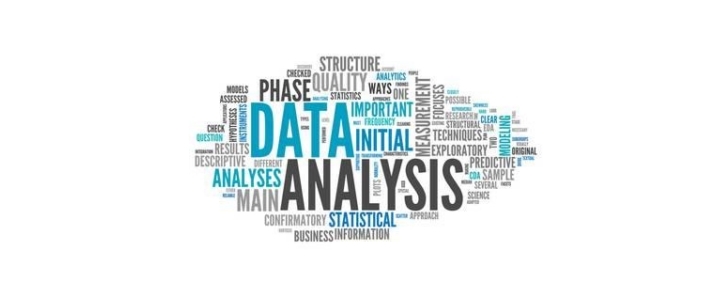The most important task that you will undertake in your PhD research project is the analysis of data.
The integrity and rigour of your research is utterly dependent on getting the analysis right and it will be intensely scrutinised by the external examiners. Think of it this way, you started out with a set of research questions or phenomena that you wanted to explore. You decided on the methodology and the research methods that would be most effective for the purpose.
You have gathered the data accordingly and now you have to undertake analysis to produce the findings that will contribute to new knowledge within the discipline. Get it right and your methodology would have been proven fit for the purpose. Get it wrong and your competence at planning and implementing a high-level research project will be severely questioned.
If you do not undertake the analysis correctly then you will make it difficult for yourself to move to the next stage, the crucial stage of writing up your findings. If your findings are vague and inconclusive then your whole thesis will be worthless.
Tips for conducting good qualitative data analysis
- Gather all your interview transcripts and field notes together in preparation for coding.
- Use a coding technique that is appropriate for your research project. APRIORI codes are linked to the research questions you started out with so these will help you to link the data back to those research questions.
- EMPIRICAL codes are created from the emerging data so are essential in identifying new phenomena that you had not necessarily predicted.
- Go through each piece of data slowly and carefully adding codes, making additional notes and highlighting any quotes you may wish to use.
- Once this has been completed and you have surveyed the coded data, examine it again for similarities and differences (constant comparative method). A great deal of interpretation is required at this stage and you might want to make research notes on your choices as an additional validity tool.
- After you have completed the comparative analysis the data must be re-examined to identify broader conceptual themes. These should be fairly easy to identity as they should link back to your theoretical framework and so you see theories jumping out at you.

The conceptual themes will help you plan the chapter headings for the remainder of your thesis. If you have done a good job of the coding and analysis then in writing up and discussing your findings you should be able to demonstrate how your findings answer your research questions, or what phenomena you have identified in your research exploration, highlighting any new theories (we’re talking micro here not macro) that have emerged.
Questions you should be asking yourself once you have completed the data analysis and before writing up relate back to your literature review. The purpose of the literature review is to critically analyse the literature related to the topic and identify any gaps.
So you ought to be thinking about whether your research that you have now analysed has helped to fill any of those gaps – if not then why? Is there a flaw in the design of your research or in your sample? In the case of interviews, did you interview the right people? Did you ask the right questions? Have you interpreted the responses correctly?
The more you examine and re-examine the data then the easier it becomes for you to identify the conceptual themes and emerging theories, enabling you to write with conviction and authority for the remaining chapters of your thesis. So make sure you nail the analysis!
Citing This Article
APA
Gabriel, D. (2013). Qualitative data analysis. Accessed on ‘date’ from https://deborahgabriel.com/2013/04/25/qualitative-data-analysis/
Harvard
Gabriel, D., 2013. Qualitative data analysis. Accessed on ‘date’ from https://deborahgabriel.com/2013/04/25/qualitative-data-analysis/
Follow Me on Academia.edu



Thanks for the post Deborah, great read to get my analysis started!
Good article. Thanks for sharing.
Hi Dr. DEBORAH, a very inspiring guidence on analysis which is very useful in achieving this big dream. Awfully grateful and appreciate the time you take to guide aspiring PhD students. Great work!
Thank you. This article has helped me to understand the analysis process.
Deborah, Good analysis.You have helped me a lot, as I am planning to do data collection in February. Good explanation.
Thanks Deborah for this piece of advice on how to do the data the analysis, at least now I can start doing my data analysis.
Thanks so much the information was so useful to me
This is perfect! Thank you so much.